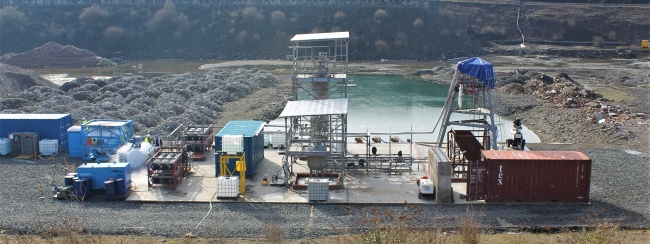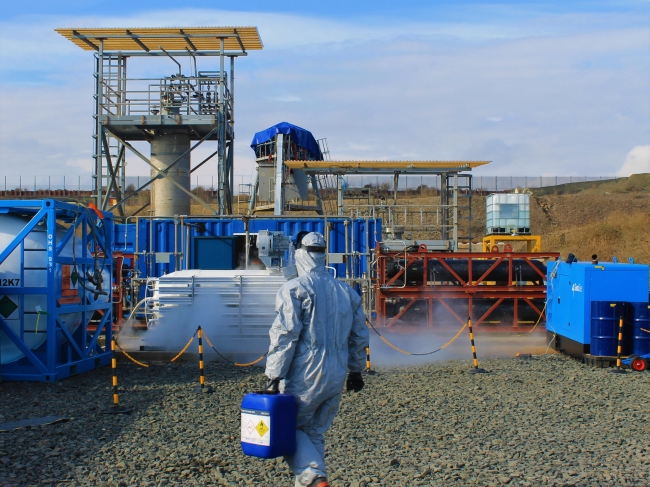3 minute read
Rocket engine test complex expected to create over 170 jobs
Skyrora – the Edinburgh-based space rocket company – has opened a new engine test complex in Scotland, where it already has successfully tested its 3.5kN engine and three-tonne engine for its sub-orbital and orbital rockets. Skyrora expects the newly established test complex to help the company create over 170 new technical jobs in the area by 2030.
The engine test complex layout is fairly minimal, mainly consisting of a fuel and oxidiser loading system to put fuel into both tanks and a pressure supply system to feed the fuel to the engine in the test stand. Skyrora also built the test stand, the road to access the site and the concrete slab for the test site to sit on. It took the team only a few weeks to build, at a fraction of the estimated time and cost, while making sure all measures followed health and safety guidelines.

Skyrora’s new engine test complex in Scotland is expected to help the company create over 170 new jobs in the area by 2030 / Picture: Skyrora
Skyrora’s vision is to test all three engines used on its rocket suite in the one location: the seven-tonne engine for the first and second stage of the orbital Skyrora XL launch vehicle, the 3.5Kn engine for the third stage, and the three-tonne engine for the sub-orbital Skylark L launch vehicle. Variables such as pressure, thrust, flow of fuel and flow of oxidizer are stress-tested and assessed as part of the process.
Volodymyr Levykin, chief executive officer of Skyrora, said: “The opening of our engine test complex represents a giant leap forward for the UK’s ambitions as a space nation and Scotland’s status as a space hub. The location and additional jobs will benefit the UK space industry and help the overall economy grow.
“It will also allow Skyrora’s highly skilled workforce and a young generation of engineers and technicians to be a part of this space revolution. Skyrora has developed and come so far as a team and a company, and I am really proud to see how many milestones we have achieved in a short period of time.”

Skyrora aims to complete the inaugural launch of Skyrora XL from a UK spaceport by 2023 / Picture: Skyrora
Dr Jack-James Marlow, engineering manager at Skyrora, who oversaw the testing, added: “Our engine test complex is a fantastic opportunity for Skyrora and the UK space industry. Scotland is heading towards an unprecedented growth in UK space and our complex is one step closer to achieving this. We are planning to test all our engines, which are fully 3D printed and operate on high-test peroxide (HTP, a highly concentrated solution of hydrogen peroxide), at the site.
“Our recent successful testing of the three-tonne engine is nearly ten times greater in thrust than our last series of engine tests on our low Earth orbit (LEO) engine. We pushed the engine to its limits to find its operational envelope and critical parameters. The engine performed as expected and has enabled us to begin small volume production of the engine.”
Looking to the future, both Skylark L and its 22-metre sibling Skyrora XL will utilise Ecosene – a high-grade fuel developed by Skyrora and made from waste plastics. Technological advances mean Ecosene will be able to produce 600kg of usable kerosene from 1000kg of waste plastics in the space of 24 hours. Skyrora will also use hydrogen peroxide as its fuel oxidiser. This removes the need and cost for cryogenic freezing due to Scotland’s unpredictable weather.
Skyrora aims to complete the inaugural launch of Skyrora XL from a UK spaceport by 2023.
